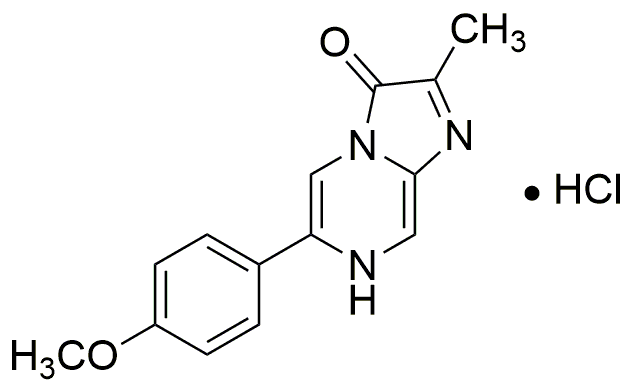MCLA is widely utilized in research focused on:
- Pharmaceutical Development: MCLA serves as a key intermediate in the synthesis of various pharmaceutical compounds, particularly in the development of anti-cancer agents. Its unique structure allows for the modification of drug properties to enhance efficacy.
- Biochemical Research: This compound is used in studies investigating enzyme inhibition and receptor interactions, providing insights into metabolic pathways and potential therapeutic targets.
- Material Science: MCLA is explored for its potential in creating advanced materials, such as polymers and coatings, due to its chemical stability and reactivity, which can improve material performance.
- Agricultural Chemistry: Researchers are investigating MCLA's potential as a pesticide or herbicide, leveraging its chemical properties to develop safer and more effective agricultural solutions.
- Analytical Chemistry: MCLA is employed as a standard in various analytical techniques, aiding in the detection and quantification of related compounds in complex mixtures, which is crucial for quality control in manufacturing.
Información general
Propiedades
Seguridad y normativas
Aplicaciones
MCLA is widely utilized in research focused on:
- Pharmaceutical Development: MCLA serves as a key intermediate in the synthesis of various pharmaceutical compounds, particularly in the development of anti-cancer agents. Its unique structure allows for the modification of drug properties to enhance efficacy.
- Biochemical Research: This compound is used in studies investigating enzyme inhibition and receptor interactions, providing insights into metabolic pathways and potential therapeutic targets.
- Material Science: MCLA is explored for its potential in creating advanced materials, such as polymers and coatings, due to its chemical stability and reactivity, which can improve material performance.
- Agricultural Chemistry: Researchers are investigating MCLA's potential as a pesticide or herbicide, leveraging its chemical properties to develop safer and more effective agricultural solutions.
- Analytical Chemistry: MCLA is employed as a standard in various analytical techniques, aiding in the detection and quantification of related compounds in complex mixtures, which is crucial for quality control in manufacturing.
Documentos
Hojas de datos de seguridad (HDS)
La SDS proporciona información de seguridad completa sobre la manipulación, el almacenamiento y la eliminación del producto.
Especificación del producto (PS)
La PS proporciona un desglose completo de las propiedades del producto, incluida la composición química, el estado físico, la pureza y los requisitos de almacenamiento. También detalla los rangos de calidad aceptables y las aplicaciones previstas del producto.
Certificados de análisis (COA)
Busque certificados de análisis (COA) ingresando el número de lote del producto. Los números de lote y de partida se pueden encontrar en la etiqueta de un producto después de las palabras "Lote" o "Lote".
Número de catálogo
Número de lote/lote
Certificados de origen (COO)
Este certificado de origen confirma el país en el que se fabricó el producto y también detalla los materiales y componentes utilizados en él y si se deriva de fuentes naturales, sintéticas u otras fuentes específicas. Este certificado puede ser necesario para cumplir con las normativas aduaneras, comerciales y regulatorias.
Número de catálogo
Número de lote/lote
Hojas de datos de seguridad (HDS)
La SDS proporciona información de seguridad completa sobre la manipulación, el almacenamiento y la eliminación del producto.
DownloadEspecificación del producto (PS)
La PS proporciona un desglose completo de las propiedades del producto, incluida la composición química, el estado físico, la pureza y los requisitos de almacenamiento. También detalla los rangos de calidad aceptables y las aplicaciones previstas del producto.
DownloadCertificados de análisis (COA)
Busque certificados de análisis (COA) ingresando el número de lote del producto. Los números de lote y de partida se pueden encontrar en la etiqueta de un producto después de las palabras "Lote" o "Lote".
Número de catálogo
Número de lote/lote
Certificados de origen (COO)
Este certificado de origen confirma el país en el que se fabricó el producto y también detalla los materiales y componentes utilizados en él y si se deriva de fuentes naturales, sintéticas u otras fuentes específicas. Este certificado puede ser necesario para cumplir con las normativas aduaneras, comerciales y regulatorias.


